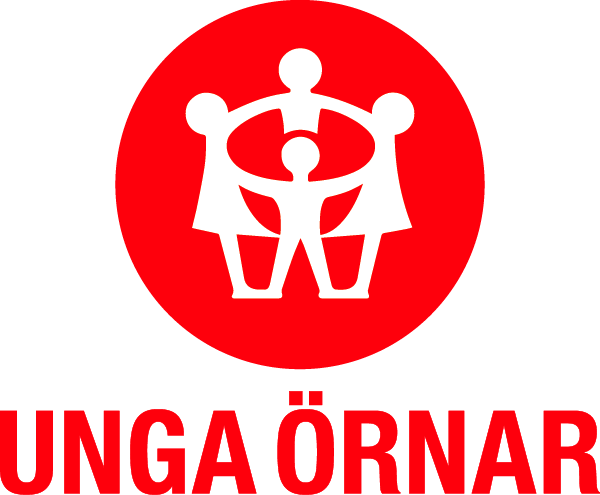
Vad är förebyggande arbete?
Förebyggande arbete syftar till att förhindra eller minska risken för framtida problem, skador eller negativa händelser genom att vidta åtgärder i förväg. Det innebär att man aktivt tar initiativ och vidtar åtgärder för att förhindra eller minska förekomsten av problem eller risker innan de inträffar. Förebyggande arbete kan tillämpas inom olika områden, inklusive hälsa, säkerhet, brottsförebyggande, miljöskydd och många andra områden. Tidiga insatser fokuserar på att stödja och stärka individer och samhällen för att förhindra problem. Det kan innebära tidiga insatser i skolor, inom demokrati, på fritiden och stöd till våra mest utsatta – barn och unga.

Det här är Cajsa. Hennes familj har det tufft ekonomiskt. Det påverkar Cajsas fysiska, känslomässiga och sociala utveckling. Den ekonomiska stressen i familjen känner hon av och mår själv dåligt, har ångest och är deprimerad. Hon har inte samma möjligheter att delta i aktiviteter och evenemang som andra barn. Cajsa känner sig ensam och utanför.

På väg hem från skolan ser Cajsa en affisch med aktiviteter. Det första hon tänker på är ”hur mycket kostar det?”. Men det står att det är gratis aktiviteter. Hon bestämmer sig för att gå till aktiviteten som är varje onsdag. På aktiviteten träffar hon nya vänner och trygga ledare. Hit vill hon komma tillbaka, det är roligt och hon känner sig välkommen.

På sina aktiviteter hos Unga Örnar har Cajsa växt som person, hon mår bättre och skaffat flera nya vänner. Hon har även fått lära sig mer om demokrati och att påverka. Det vill hon göra, för Cajsa är det viktigt att fler barn får en bra fritid. Hon väljer att sitta med i styrelsen och utbilda sig till ledare. Vad tror du hade hänt om Cajsa inte hittat till Unga Örnar?
Meningsfull, trygg och rolig fritid är avgörande för att förebygga negativ utveckling. Det inkluderar aktiviteter och workshops som sport, demokrati, konst, kultur och andra intressen som ger barn en trygg plats men även verktyg för att växa upp till demokratiska medborgare. Genom fler aktiviteter, workshops och utbildningar ökar vi inte bara kunskapen utan ger barn och unga en plats att bygga relationer och hitta en känsla av tillhörighet. Det är förebyggande arbete på riktigt, där ohälsa, kriminalitet och negativt beteende förebyggs genom att erbjuda alternativ till destruktiva aktiviteter. Vi erbjuder tusentals barn och unga aktiviteter från lokalt till internationellt. En aktiv fritid är ett av det mest effektiva medel för att förebygga utanförskap och främja gemenskap. Unga Örnar erbjuder en plats där unga kan träffa vänner, ha roligt och utvecklas som demokratiska medborgare.

Adam går i årskurs 9 i grundskolan och har svårt med matematik i skolan. Klassrummet är för stökigt och läraren hinner inte hjälpa Adam under lektionerna. Han är på väg att få underkänt i matte, och det kan påverka hans möjligheter att söka vidare till gymnasiet. Hemma bor han med sin mamma och 3 syskon. Hans mamma arbetar kvällstid och syskonen har inte möjlighet att hjälpa honom med sina läxor.

För att klara av sina studier vill Adam hitta någon som kan hjälpa honom med matten. En kväll sätter han sig framför datorn och söker "Läxhjälp i Borlänge". Första resultatet som dyker upp är "Läxhjälp med Unga Örnar". Adam klickar sig in och ser att det finns läxhjälp nära honom varje tisdag. Han skriver ett sms till numret som står på hemsidan. "Hej Christian, jag behöver hjälp med läxorna i matte. Kan jag komma till er?"

Dagen efter ser Adam ett sms från "Christian Läxhjälp" som bjuder in honom till nästa träff på tisdag. Väl på plats får Adam träffa andra vänner från skolan som också får hjälp med sina läxor. På plats finns det fika och ledare som välkomnar honom. Han känner sig sedd av ledarna som gör en plan tillsammans med Adam om hur de ska fortsätta. Efter några månader får Adam sitt slutbetyg i matte, han blir superglad när han ser att det är ett B.
Utbildning är en nyckel i att förbereda individer för framtidens utmaningar och möjligheter. Det inkluderar både grundskola och gymnasium samt högre utbildning. Utbildning ger kunskap, färdigheter och sociala kompetenser som är nödvändiga för att individer ska kunna bidra till samhället och uppnå sina mål. För att förebygga dåliga resultat i skolan arbetar vi med bland annat läxläsning i skolor och utanför skolan. Genom sagostunder ökar vi läsförmågan för barn och unga. I den här frågan engagerar vi oss även för ökade resurser till skolan för fler lärare och annan personal runtomkring unga. Skolan ska vara en plats för barn och unga att utvecklas. Men det är inte alltid som utbildning måste vara formell i form av skola. Vi arbetar aktivt med att utbilda demokratiska medborgare genom att lära barn och unga föreningskunskap och demokrati. På så sätt stärker vi demokratin i Sverige och internationellt. De får vara med i olika utbyten och lära sig nya saker genom workshops och föreläsningar, delta i politiska sammanhang och engagera sig mer i samhället.
